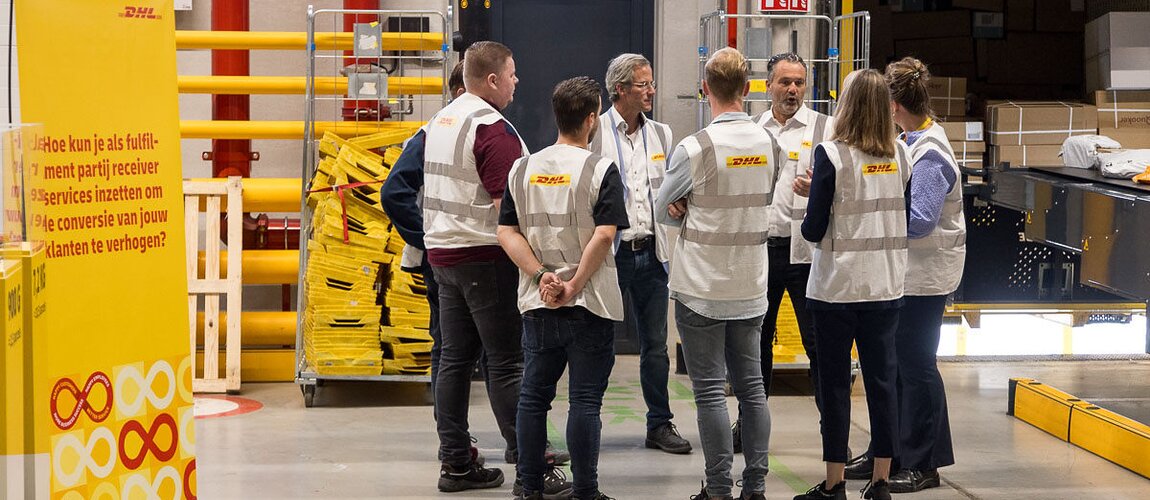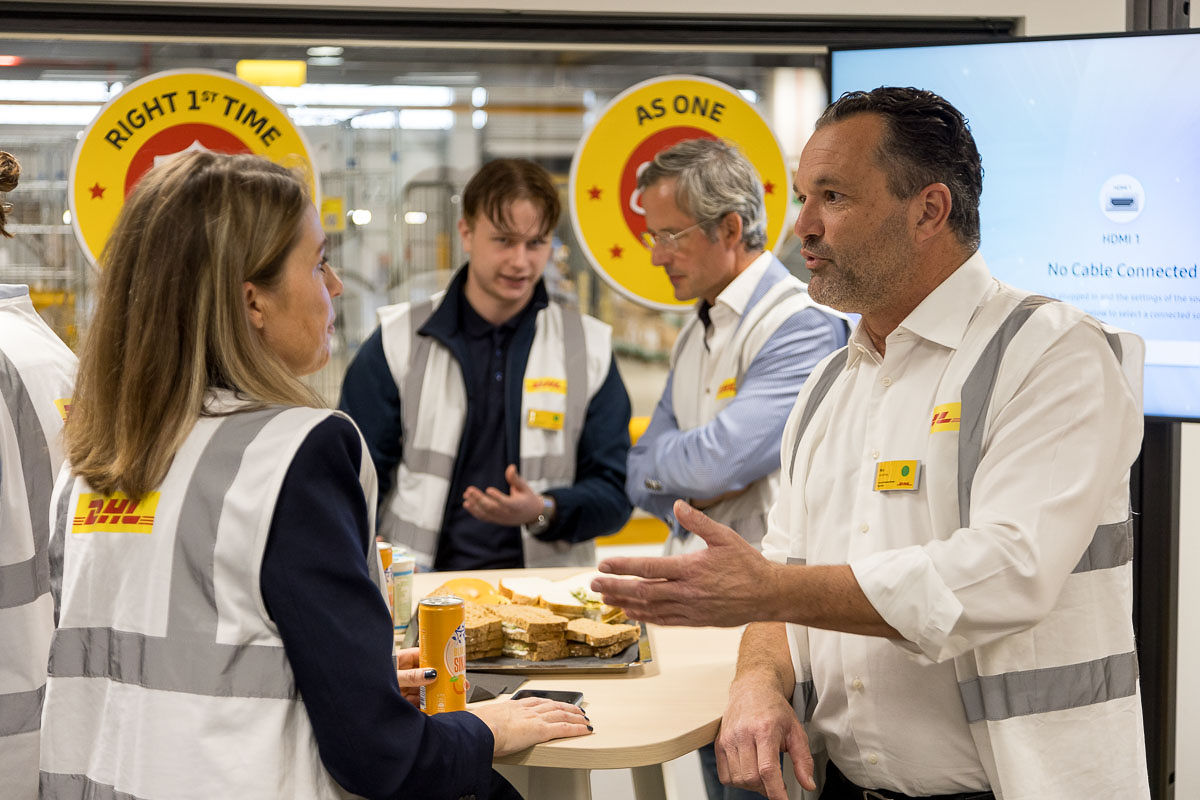
Satisfied customers mean higher conversion: web shops, fulfilment parties and we as a shipping partner know that. Ensuring that orders reach recipients at the agreed time and place plays a major role in customer satisfaction. Whether it's the online checkout, order fulfilment or delivery: every link in the logistics chain plays an important role. To discuss market developments and discover how we can support each other even better, we invited various fulfilment, marketing and shipping specialists to our CentralHub in Zaltbommel. This led to interesting insights, which we share in this article.
Let's start with an important theme in today's e-commerce landscape: the role of marketplaces. More and more online stores are selling their items not only through their own channels, but also through online marketplaces such as bol., Zalando and Amazon. On these platforms they reach a wider audience and gain access to new markets, without having to invest a lot of marketing budget. Good news for online shops, and ultimate convenience for consumers, who can find a wide range of products in one place. But this development also brings challenges, as became clear during the discussions in Zaltbommel.
Power through strikes
Things are changing for fulfilment parties with the rise of online marketplaces. For example, margins are compromised because these platforms offer logistics services themselves. Think of shipping via bol. (Vvb) or Fulfilment by Amazon (FBA). In addition, marketplaces can issue so-called strikes, for example, if sellers fail to fulfill their delivery promise. Does this happen too often? Then measures such as temporary closure or - in the worst case - permanent banning come into play.
This can cause friction because marketplaces do not take into account the cause of a delayed delivery. Weather conditions, labor strikes or other external factors: a strike remains a strike. If a shop chooses to ship via the platform itself, no strikes are handed out. This causes friction: while these measures were intended to provide recipients with optimal service, the focus now seems to shift to expanding marketplaces' own products and services.
Stronger together
So the influence of marketplaces is growing rapidly, presenting fulfillment parties with new challenges. The same applies to online stores and shipping parties. Therefore - as we also saw in Zaltbommel - we must ask ourselves and each other how we can cope with this development. Reinventing yourself takes time, so there will not be a ready-made solution today or tomorrow.
Nevertheless, as far as we are concerned, there are plenty of opportunities. Whichever way it goes: fulfillment parties have knowledge and capacity that marketplaces cannot do without. There will always be online stores that want to be unburdened, and platforms will not easily take over that market completely. Our advice is to engage with marketplaces to strengthen the cooperation between different e-commerce players. Ultimately, recipient customer satisfaction is the common goal of all parties, which we can only achieve together.
(Text continues below the picture.)

Three teams, one task
Strengthening the bond between logistics partners also contributes to better service. To illustrate: in order to keep delivery promises, fulfilment parties and online stores must be able to move flexibly with peak times. Mondays, for example, often turn out to be a race against the clock because of all the orders received over the weekend.
To facilitate this flexibility, we not only pick up parcels on Mondays - if requested, we can also come on Sundays. In addition, we offer three pickup times per day, including late morning and afternoon. This makes same-day delivery possible, but also allows more time to prepare orders for shipment and still deliver them to consumers at the agreed time. These services allow online stores and fulfilment parties to better spread out busy times and provide grip - especially during peak periods.
Prefer faster, or more traction?
Ultimately, consumer desire is leading when it comes to conversion. But in the end, what do online shoppers value most? Receiving their order as quickly as possible, or deciding for themselves where and when they receive it? Research shows that it is often the latter - at least in the Netherlands. So online stores do well to offer their customers multiple shipping options so that they have control over their order. Sustainability also plays an increasingly important role. By advising online stores to add as many (green) options as possible to their checkout, you as a fulfilment party contribute to more satisfied customers and a smoother process.
Importance of communication
One of the most important aspects of delivery promise and customer satisfaction is managing expectations. In practice, recipients are more understanding if they know in advance that there is a chance of delay. So if there is a large peak in demand, it helps to prepare consumers in advance for longer delivery times. It is also advisable to keep recipients informed about the journey of their order throughout the process. They often only see where their order is once the package has been scanned at the shipping partner's sorting center, but have no idea what happened to it before. By providing more information, consumer understanding grows. From check-out to front door: everyone benefits from good communication between the different logistics links.
Opportunities in view
To join forces and promote connection, we start with ourselves. In Zaltbommel, for example, we found that there are sufficient opportunities to strengthen our cooperation with fulfilment parties, and to support online stores even better in their growth. It all starts with knowledge of the services and tools of logistics partners. We are therefore keen to engage in further discussions with fulfilment parties in order to improve our information provision. It would be a shame not to seize the opportunity for closer cooperation between all players in e-commerce, especially in these challenging times.
Helping online shops grow further? Talk to us and receive relevant information.